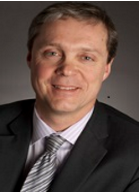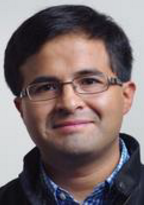The course will be held in English on 13th and 14th March 2017 with an intensity of 16 hours in the theme reservoir geomechanics of heavy oil reservoirs.
Course Description
The first part of the course deals with fundamentals of rock mechanics. This includes theories of elasticity and failure mechanics. Fundamentals of the theory of poroelasticity are explained. An introduction to Hydro-Thermal-Mechanical concepts and their roll in reservoir geomechancis. On the second part, a general review of states of stress in the subsurface. Micro-frac, mini-frac and hydraulic fracturing for in situ stress determination are discussed. Then, well integrity assessment and reservoir surveillance and reservoir geomechanical modeling are a review. The course will conclude with several case studies.
Instructors
 |
Rick Chalaturnyk PhD.The primary instructor of the course will be Dr. Rick Chalaturnyk. Dr. Chalaturnyk has 29 years of industrial experience and joined University of Alberta as faculty in 1997. He is currently a professor of Geotechnical Engineering in the Department of Civil and Environmental Engineering and holds the Foundation CMG Industrial Research Chair in Reservoir Geomechanics for Unconventional Resources. Prior to joining the University, Rick spent time in the “real” world where he co-founded a reservoir surveillance company called PROMORE Engineering and has recently been involved with Opsens Solutions, a company providing fiber-optic and non-fiber monitoring solutions to the SAGD and CO2 storage world. To know more about the professor visit the official page of the university and Geo-Ref group. |
 |
Gonzalo Zambrano PhD.The second instructor will be Dr. Gonzalo Zambrano-Narvaez. Who is a senior research associate and technical director of the Unconventional Reservoir Geomechanics Consortium Project at the University of Alberta. Dr. Zambrano earned his PhD in Geotechnical Engineering in 2012 in the "Design, Deployment, Performance and Assessment of Downhole and Near Surface Monitoring Technology for Geological CO2 Storage". Gonzalo provided key leadership in the GEOREF establishment and was the principal technical expert in the acquisition, commissioning and operation of the GeoCERF geotechnical centrifuge facility. Dr Zambrano's experience ranges from the complex geotechnical design of computational fluid dynamics for the design and installation of specialized wells for reservoir monitoring to geomechanical characterization of reservoirs. To know more about the researcher visit the official page of the Geo-Ref group. |
Outline
Day 1
| Time | Topic |
| 8:00 - 8:30 am | Safety Talk, Introduction and Course Overview |
| 8:30 - 10:00 am | Where Geomechanics Can Play a Role |
| 10:15 - 12:00 m | Stress, Strain and Failure Processes - Laboratory Testing |
| 1:00 - 2:30 pm | Multiphase Flow and Geomechanics |
| 2:45 - 5:00 pm | Thermal Geomechanics |
Day 2
| Time | Topic |
| 8:00 - 10:00 am | In-situ Stress |
| 10:15 - 11:00 am | Well Integrity |
| 10:11 - 12:00 m | Reservoir Surveillance |
| 1:00 - 3:00 pm | Reservoir Geomechanical Modelling |
| 3:15 - 5:00 pm | Case History Reviews & Geomechanics |
To take into account
Registration for the course in addition to the academic activities includes material for the course, lunch on days 13 and 14 and course memories. Visit the event costs to know the discount for participating in both the course and the symposium.

